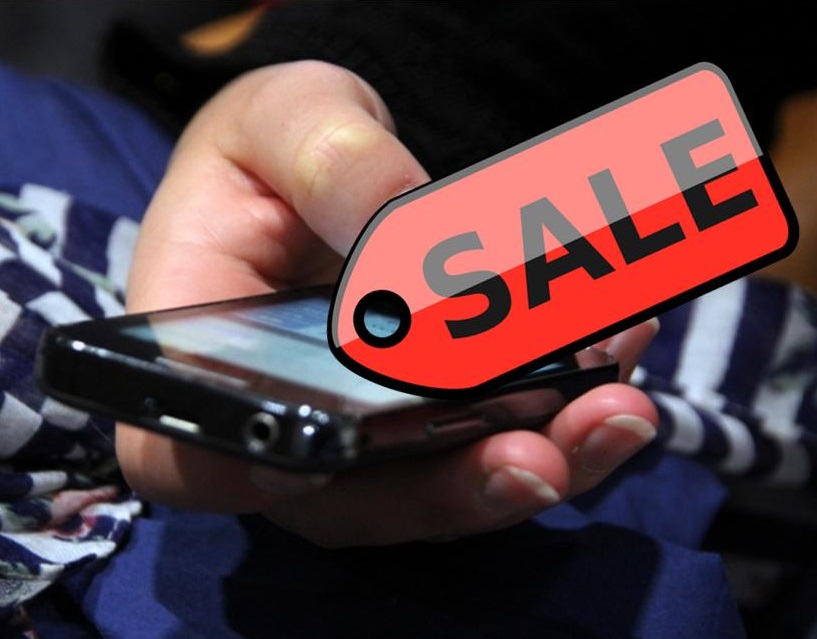Brick and mortar shops are finding that smartphones present an important opportunity for advertising.
A new report from InReality, the first from this firm, which was entitled “Reality of Retail”, has shown that mobile marketing is starting to play an important role in-store due to the massive increase in the use of smartphones by consumers.
Despite the influx of mobile device use, in-store purchases still represent the largest percentage of retail sales.
In fact, 94 percent of retail sales in the United States are made in-store. That said, those shoppers are using their smartphones to an increasing extent while they are inside those shops, so it represents a very important opportunity for retailers to be able to connect with customers through mobile marketing. The InReality also went on to report that not all of the research that consumers are doing with regards to products that they want is being conducted online.
This means that mobile marketing in-store has a considerable chance to influence decisions.
 The participants in the research showed that 53 percent of shoppers prefer to learn more about the products that they are considering by going to the store itself. Among shoppers between the ages of 18 and 24 years, that percentage rose to 57 percent. Among the shoppers who do head to the brick and mortar shops, 75 percent reported that they use their mobile devices. This does not stop them from making the purchases inside the stores. Among those who did buy, one in four said that they had bought items using m-commerce.
The participants in the research showed that 53 percent of shoppers prefer to learn more about the products that they are considering by going to the store itself. Among shoppers between the ages of 18 and 24 years, that percentage rose to 57 percent. Among the shoppers who do head to the brick and mortar shops, 75 percent reported that they use their mobile devices. This does not stop them from making the purchases inside the stores. Among those who did buy, one in four said that they had bought items using m-commerce.
That said, while traditional advertising in-store is still very important, InReality said that they will need to alter their strategies. Fifty six percent of shoppers explained that advertising has an impact on the decisions that they make while in-store. Only 12 percent feel that sales assistants in-store are “an important touchpoint in a purchase decision.” At the same time that 46 percent of shoppers say that loyalty programs help them to make their decisions, 71 percent of the users of loyalty programs will still use their smartphones while in-store in order to compare products and prices through mobile marketing tools.
A new report has suggested that shoppers are ready to start to receive notifications based on where they are.
According to a report that has been issued by an in store provider of a mobile marketing platform, Swirl Networks, consumers are becoming increasingly willing to receive location based marketing alerts that are triggered by beacon signals when they enter a shop or other similar places.
This is a trend that has been interesting many tech and advertising giants and was discussed by the MMW earlier this month.
Major technology companies, such as Apple, are now turning their sights toward location based marketing alerts and everything that surrounds them. For example, that company recently launched its iBeacon tech, which gives merchants to provide shoppers with in store messages that draw attention to sales, deals, promotions, and other information that the consumer may find relevant.
One concern some companies have had is whether consumers are ready for location based marketing alerts.
 According to the research outlined in the Swirl Networks report, consumers are ready and willing to start to obtain messages through their smartphones from a store when they have entered its doors. In fact, the study revealed that a considerable 77 percent of shoppers would be willing to share their data regarding the location of their smartphone (which is the central technology for campaigns triggered by beacons) as long as the value that they receive in return is deemed adequate.
According to the research outlined in the Swirl Networks report, consumers are ready and willing to start to obtain messages through their smartphones from a store when they have entered its doors. In fact, the study revealed that a considerable 77 percent of shoppers would be willing to share their data regarding the location of their smartphone (which is the central technology for campaigns triggered by beacons) as long as the value that they receive in return is deemed adequate.
The Swirl Networks study also showed that shoppers also have a greater likelihood of sharing their location data with their favorite retailers (as was the case among 65 percent of the research participants) than they would to Google, Facebook, or shopping or daily deal apps.
According to the report, “As retailers ramp up their use of beacons for in-store mobile marketing, they must overcome the two largest complaints from consumers about today’s mobile shopping alerts: lack of relevance (41 percent) and lack of value (37 percent).” This is important insight for retailers that hope to be able to encourage broad use of their location based mobile marketing alerts without turning off smartphone using customers.
 The participants in the research showed that 53 percent of shoppers prefer to learn more about the products that they are considering by going to the store itself. Among shoppers between the ages of 18 and 24 years, that percentage rose to 57 percent. Among the shoppers who do head to the brick and mortar shops, 75 percent reported that they use their mobile devices. This does not stop them from making the purchases inside the stores. Among those who did buy, one in four said that they had bought items using m-commerce.
The participants in the research showed that 53 percent of shoppers prefer to learn more about the products that they are considering by going to the store itself. Among shoppers between the ages of 18 and 24 years, that percentage rose to 57 percent. Among the shoppers who do head to the brick and mortar shops, 75 percent reported that they use their mobile devices. This does not stop them from making the purchases inside the stores. Among those who did buy, one in four said that they had bought items using m-commerce.
 According to the research outlined in the Swirl Networks report, consumers are ready and willing to start to obtain messages through their smartphones from a store when they have entered its doors. In fact, the study revealed that a considerable 77 percent of shoppers would be willing to share their data regarding the location of their smartphone (which is the central technology for campaigns triggered by beacons) as long as the value that they receive in return is deemed adequate.
According to the research outlined in the Swirl Networks report, consumers are ready and willing to start to obtain messages through their smartphones from a store when they have entered its doors. In fact, the study revealed that a considerable 77 percent of shoppers would be willing to share their data regarding the location of their smartphone (which is the central technology for campaigns triggered by beacons) as long as the value that they receive in return is deemed adequate.